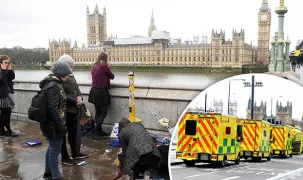Lessons from UK incidents (e.g., London Attacks)
Why Learning from Incidents Matters
As a Security Control Room (SCR) Operator, your role is not just to monitor, but to anticipate, respond, and support during critical incidents. One of the most effective ways to strengthen your skills is by learning from past UK incidents, such as the London attacks. These events provide real-world lessons in communication, coordination, and compliance, reminding us why security standards and procedures exist.

Case Example: The London Attacks
During the London terror attacks (for example, the 2005 bombings and later incidents on Westminster Bridge and London Bridge), Security Control Rooms across the city were pivotal. Operators helped to:
Relay accurate information to emergency services
Monitor CCTV to track suspects and assist in crowd safety
Support frontline officers with real-time intelligence
Maintain calm communication under immense pressure
The lesson here is that control room staff are a critical link between incident detection and effective response.
Real-World Impact of Compliance
Failure to comply can lead to serious consequences:
Legal liability if evidence is mishandled
Loss of SIA licence for breaching conditions
Reputational damage to your company and industry
Operational failures during emergencies, putting lives at risk
For example, mishandling CCTV footage during an incident could make it inadmissible in court, weakening a prosecution case.
Practical Tips for SCR Operators
Stay Informed: Know your site’s emergency procedures inside out.
Practice Communication: Use plain, clear language during incidents, avoiding jargon that can confuse responders.
Prioritise Information: Not everything you see is immediately useful. Focus on what is urgent and relevant.
Keep Calm Under Pressure: Your calm voice can steady panicked staff or public callers.
Record Everything: Detailed logs protect you legally and help during debriefs.
Building Situational Awareness
Situational awareness is the ability to see the bigger picture, not just the immediate event in front of you. During the London Bridge attack, operators had to manage multiple streams of information, CCTV, emergency calls, and reports from officers on the ground.
Tip: Always cross-check information before escalating. A single false report can create unnecessary panic.
Scenario: If you see a suspicious item on CCTV and a staff member also calls about it, you have verified intelligence, making your response stronger.
Consideration: Do not tunnel-vision on one threat; always scan for secondary risks.
Post-Incident Learning and Debriefing
An often-overlooked part of control room operations is what happens after an incident. Every attack, protest, or emergency is a chance to improve procedures.
Debriefs allow operators to share what went well and what failed.
Evidence handling is reviewed to ensure compliance and accuracy.
Training updates are designed based on lessons learnt.
Example: After the 7/7 London bombings, improvements were made in inter-agency communication protocols, ensuring quicker information sharing in later incidents.
Tip: Take personal notes after an incident while it’s fresh in your mind. This helps you reflect and contribute to organisational learning.
Scenario for Reflection
Imagine you are on shift in the control room of a busy London office building. Suddenly, reports come in of a vehicle attack nearby. People rush into the lobby in panic. Your role is to:
Monitor external cameras for threats
Alert police and ambulance services
Provide building management with clear updates
Keep internal staff calm and directed towards safe zones
Would you know who to call first? How to record events? How to prevent rumours from spreading internally? This scenario highlights why drills and compliance with standards matter.
Key Considerations for Your Role
Vigilance: Always Expect the Unexpected
You are the eyes and ears of the site, so pay attention to the small details.
Notice changes in behaviour, patterns, or environments.
Trust your instincts, if something feels off, it probably is.
Preparedness: Practice Makes Professional
Regular drills reduce hesitation when the real thing happens.
Practice makes your responses automatic under pressure.
Example: After multiple fire drills, most operators have developed an instinctive understanding of how to guide evacuees and communicate with fire services.
Responsibility: Every Action Matters
Your decisions directly impact safety, evidence handling, and the trust that is established.
Clear communication with emergency services can save lives.
Poor evidence handling (like missing timestamps on CCTV) could make evidence inadmissible in court.
Continuous Learning: Stay Ahead of the Curve
Treat every incident, even a false alarm, as an opportunity to improve.
Ask yourself after each shift: What went well? What could I do better?
Small, consistent improvements build long-term professionalism.
Did You Know?
In 2023, the SIA reported that over 380,000 active licences were in circulation in the UK, with CCTV operatives being one of the fastest-growing sectors.
Studies show that during high-stress situations, individuals can lose up to 40% of their ability to recall information accurately. This is why control room logging is vital, as records capture what memory may forget.

